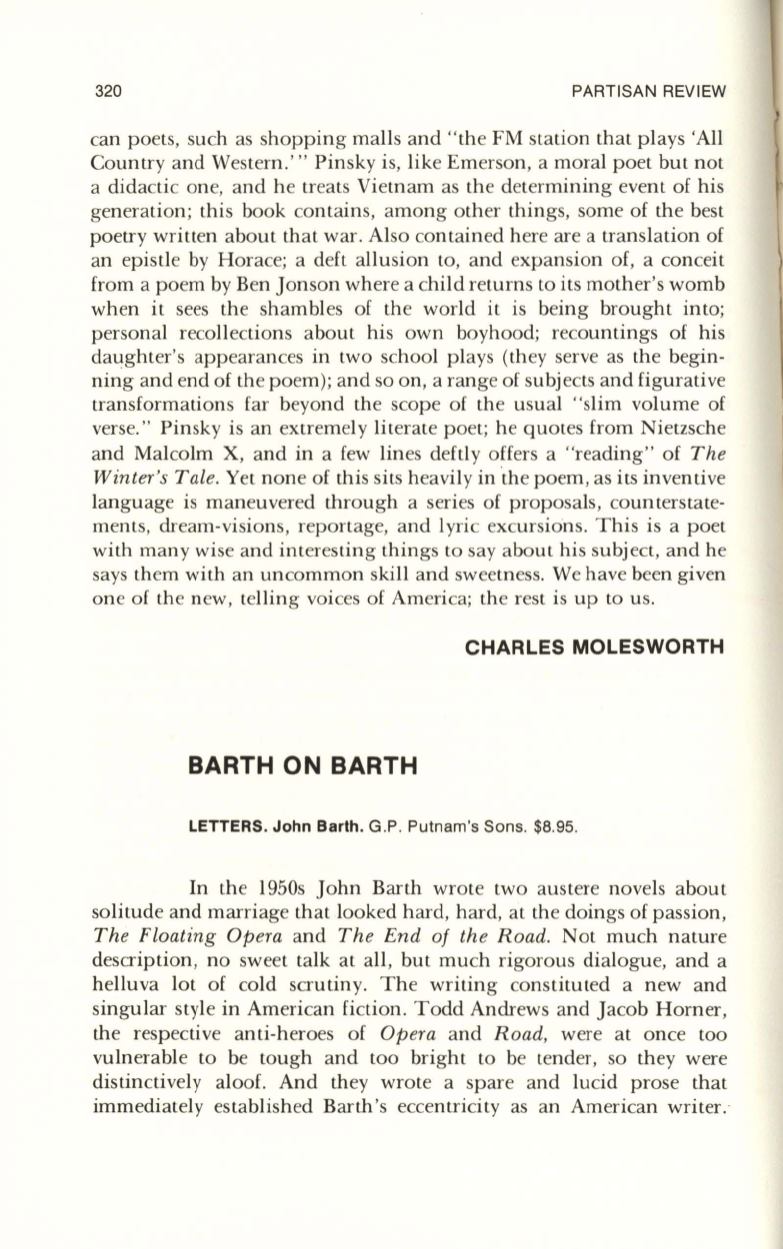
320
PARTISAN REVIEW
can poets, such as shopping malls and "the FM station that plays 'All
Country and Western.''' Pinsky is, like Emerson, a moral poet but not
a didactic one, and he treats Vietnam as the determining event of his
generation; this book contains, among other things, some of the best
poetry written about that war. Also contained here are a translation of
an epistle by Horace; a deft allusion to, and expansion of, a conceit
from a poem by Ben Jonson where a child returns to its mother's womb
when it sees the shambles of the world it is being brought into;
personal recollections about his own boyhood; recountings of his
daughter's appearances in two school plays (they serve as the begin–
ning and end of the poem); and so on, a range of subjects and figurative
transformations far beyond the scope of the usual "slim volume of
verse." Pinsky is an extremely literate poet; he quotes from Nietzsche
and Malcolm X, and in a few lines deftly offers a "reading" of
The
Winter's Tale.
Yet none of this sits heavily in 'the poem, as its inventive
language is maneuvered through a series of proposals, counterstate–
ments, dream-visions, reportage, and lyric excursions. This is a poet
with many wise and interesting things
to
say about his subject, and he
says them with an uncommon skill and sweetness. We have been given
one of the new, telling voices of America; the rest is up to us.
CHARLES MOLESWORTH
BARTH ON BARTH
LETTERS. John Barth.
G.P, Putnam's Sons, $8,95.
In the 1950s John Barth wrote two austere novels about
solitude and marriage that looked hard, hard, at the doings of passion,
The Floating Opera
and
The End of the Road.
Not much nature
description, no sweet talk at all, but much rigorous dialogue, and a
helluva lot of cold scrutiny. The writing constituted a new and
singular style in American fiction. Todd Andrews and Jacob Horner,
the respective anti-heroes of
Opera
and
Road,
were at once too
vulnerable to be tough and too bright to be tender, so they were
distinctively aloof. And they wrote a spare and lucid prose that
immediately established Barth's eccentricity as an American writer:


